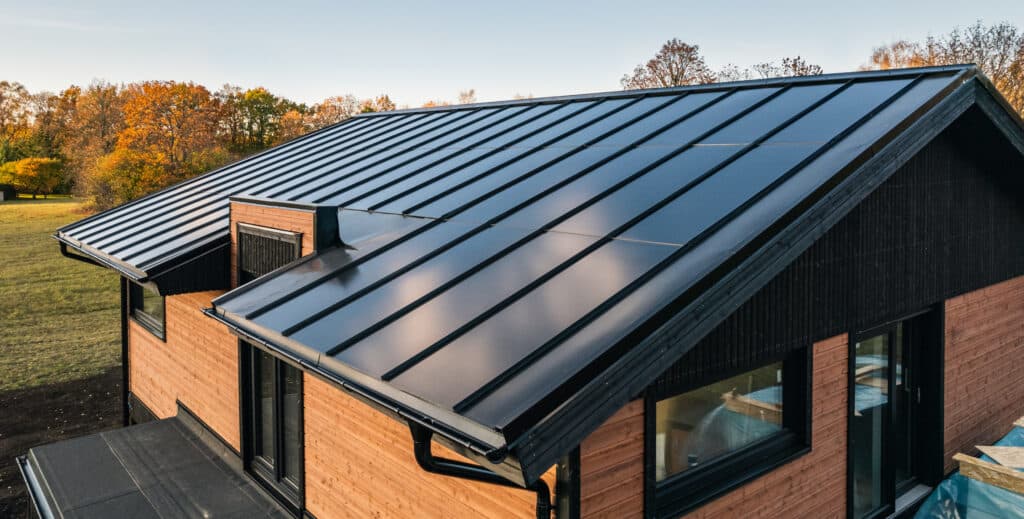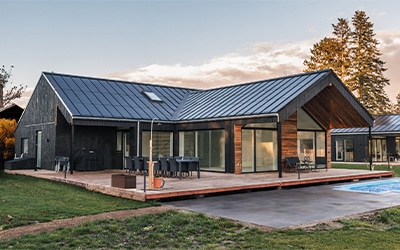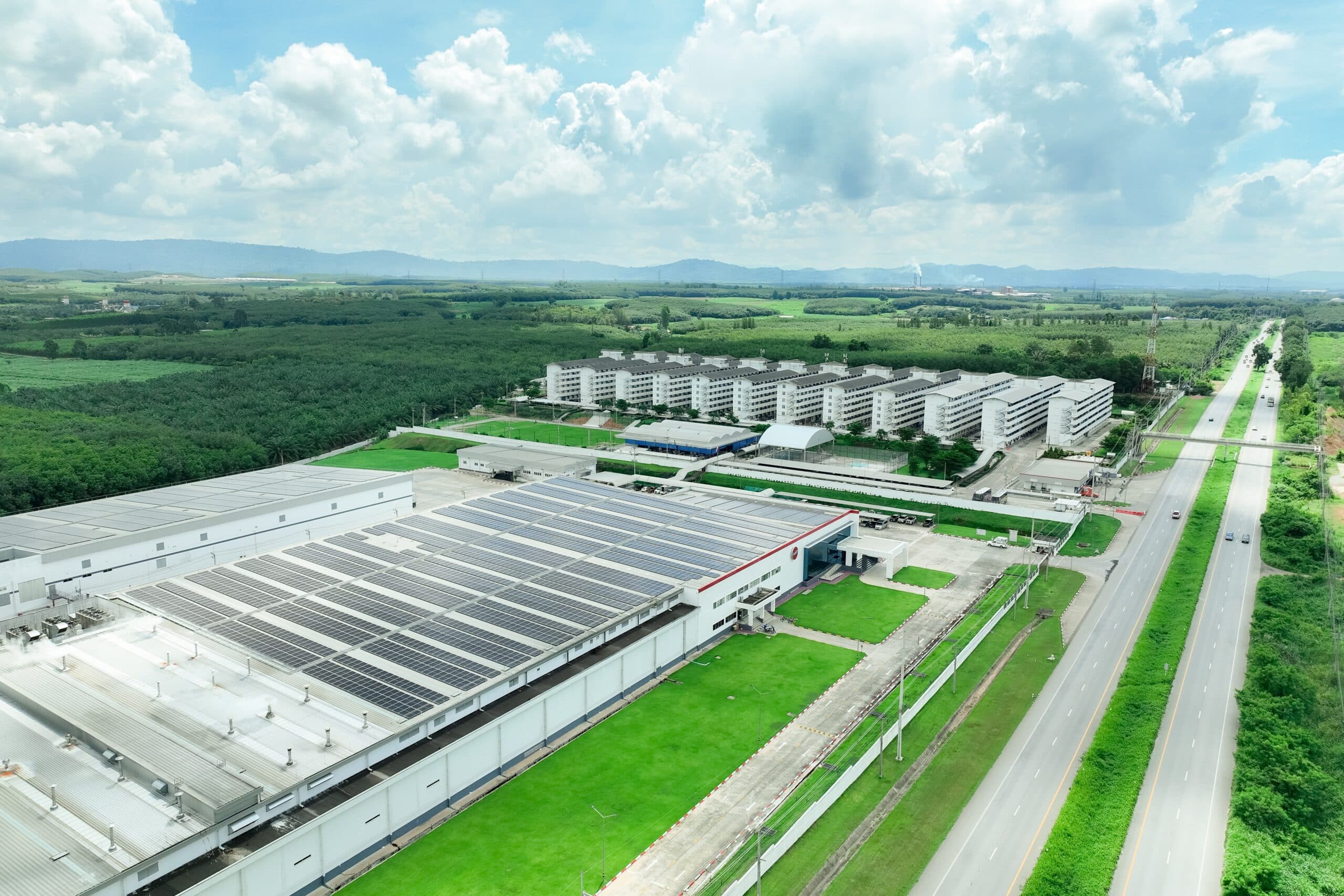Solar energy is becoming an increasingly popular choice for environmentally conscious homeowners in the UK, but do you need planning permission for solar panels?
For many years, homeowners have used renewable energy sources such as wind and water turbines or solar panels to reduce their reliance on traditional fossil fuels. It’s easy to see why; not only are they more affordable than ever before, but they also offer clean, safe and reliable electricity that can be used throughout your home.
However, before investing in any renewable energy system, it’s important to determine if there are any legal requirements you must comply with first – like getting planning permission from your local council.
If you’re thinking about installing solar panels on your property, then read on. We’ll cover everything you need to know about the planning application process so that you can decide whether going solar is right for you.
Let’s get into it!
How Does Planning Permission Work For Solar Panels In The UK?
In the UK, planning permission is required to install solar panels on a property. This applies regardless of whether the installation is for domestic or commercial use.
The rules and regulations governing this process differ from region to region, so it’s important to check with your local authority before beginning any work.
The general rule of thumb is that if you want to place the panels in an area visible from a public space, such as a road or footpath, then you will need to apply for planning permission. However, if they are placed on the roof and not within view of public spaces, no application usually needs to be made. In certain cases though – such as when installing larger systems – even rooftop installations may require permission.
It’s also worth noting that some areas have strict conservation laws which limit what can be done regarding external alterations; these must be considered before deciding to proceed with an installation.
Do I Need Planning Permission For Solar Panels On My Home?
Generally, in the UK, you do not need planning permission for solar panels on your home. However, checking with local council authorities before installing them is always recommended. Here are some key points worth considering:
- Checking with the Local Council – Contact your local authority to determine if there are any specific rules and regulations related to installing solar panels in your area. If you own a large property or a historically significant property, you may need special permission from your local council to begin an installation.
- Size & Type of Solar Panel – The size and type of system installed will also affect whether or not permission is required. Generally, standard domestic solar systems up to 4kW in capacity should fall within permitted development rights, but larger commercial installations may require prior approval from the council.
- #Conservation Areas & Listed Buildings – If you live in a conservation area or listed building, additional permissions could be needed even for smaller systems, so it’s important to check this beforehand. Listed buildings may also require LBC (Listed Building Consent), which you must obtain from the council.
- Roof Type & Direction – Some councils have restrictions on where panels can be placed, either due to the type of roof (e.g. flat) or the direction they face (south facing). Check with your local authority about what restrictions may apply to those areas too.
- Building Regulations – Lastly, ensure that all necessary safety checks and inspections occur once a qualified professional has installed the system, as failure to comply could lead to hefty fines and criminal prosecutions in the worst-case scenario.
Overall, while most cases don’t require planning permission when installing solar panel systems on homes, checking with local governing bodies first is essential to avoid breaking any laws unintentionally.
Therefore, it’s wise to determine what requirements exist in your region before proceeding with an installation project.
Do I Need Planning Permission For A Commercial Solar Panel Installation?
Much like the above domestic installation rules, whether or not you need planning permission for a commercial installation will come down to the size and scale of your desired installation project.
For small projects (for example, the addition of a couple of panels for an extra energy boost on an office building), you will likely not require any planning permissions.
However, for large installations, for example, adding solar panels to warehouses, factories, or megastructures like football stadiums – you will require permission from the local council.
Do I Need Planning Permission To Start A Solar Farm?
As solar farms tend to be large installations, planning permission is generally needed from your local council to move ahead with the project. As solar farms are installations that may impact the community, environmental assessments and local discussions are often involved in their conception.
Developers of solar farms typically undertake a thorough environmental impact assessment and engage with local stakeholders before submitting a planning application to increase their chances of approval.
Are There Any Exemptions To Planning Permission For Solar Panels In The UK?
In the UK, homeowners and businesses may not need to apply for planning permission when installing solar panels.
This is because some installations are exempt from needing approval. For example, if a property’s wall already has an existing solar panel system installed, additional solar panels can be added without requiring approval.
It is important to note that exemptions do vary across different local authorities in the UK. Homeowners should always check with their local authority before installing any new solar panels or other renewable energy generation systems.
Solar panel installations on certain types of buildings, such as listed buildings, may still require planning permission even if they meet the criteria for exemption. There may also be restrictions placed by local authorities on what type of solar panel installation can take place in particular areas.
What Is The Process For Applying For Planning Permission For Solar Panels In The UK?
Now that you know the factors to consider when determining if planning permission is required for solar panels in the UK, it’s important to understand how to apply. The process starts with submitting an application form with drawings and a written description of your proposed installation.
- You must provide contact details and information about other associated works or on-site activities.
- Your local authority may require additional documents such as design calculations, risk assessment certificates, building regulations compliance statements and so on.
- It’s also important to check whether any relevant restrictions are in place from bodies like Historic England, which must be considered during the application process.
If successful, you will receive a notification outlining the terms of your approval before proceeding with the project installation.
How Long Does It Take To Get Planning Permission For Solar Panels?
The time it takes to obtain planning permission for solar panels in the UK can vary considerably. It may take as little as a few weeks or as long as several months, depending on where you live and what type of installation is proposed.
It is important to understand that each local authority has its procedures and requirements for granting planning permission for solar panel installations. Generally, large-scale installations such as those used in commercial settings will require more time than small-scale residential systems.
You should contact your local council before submitting an application so that you know any specific guidance they have in place. In addition, they can advise on how long the process usually takes within their area and what the wait times may look like.
When applying for planning permission, it’s wise to ensure that all necessary paperwork and information is gathered before submission – this will help speed up the process significantly.
Once submitted, most applications are decided upon within eight weeks, but there could be delays due to factors outside of anyone’s control, such as staffing levels or complex issues with other nearby developments which need resolving first.
Are There Any Costs Associated With Applying For Solar Planning Permission?
There are costs associated with applying for planning permission for solar panels in the UK. Generally speaking, you must pay a fee or an application deposit when submitting your application.
The fees vary from council to council, but they are usually less than £200 and can be paid electronically. Additionally, you may have to pay additional charges if your proposal is more complex or requires extra consultation.
Before starting installing solar panels, homeowners must check their local authority’s policy regarding planning permission for such projects. Some councils may require applications to be made before installation even begins; others may only need notification of the project after completion.
Homeowners should also bear in mind that failure to follow these requirements could result in enforcement action being taken against them by the local authority, which could mean fines or other legal penalties.
It is, therefore, essential that homeowners take all necessary steps to ensure they comply with their local council’s policies and procedures when considering installing solar panel systems on their property – this includes seeking advice from qualified professionals where appropriate and making sure the necessary funds are available for any applicable fees or deposits.
What Happens If I Install Solar Panels Without Planning Permission?
If you install solar panels without planning permission in the UK, several consequences may occur:
- Your local council could issue an enforcement notice to have them removed. This is because not applying for prior consent would be seen as breaching building regulations or causing a nuisance to neighbours.
- If you ignore this notice, the council can take legal action against you and ultimately force you to remove the installation at your own expense. In extreme cases, they can also impose fines of up to £20,000.
Even if you successfully manage all of these issues with the local authority, any potential savings made due to reduced energy bills will likely be wiped out by additional costs accrued from having to pay for removal and/or rectification work on the property.
Outdoor systems might require landscaping works such as reinstating turf or paving slabs which were disturbed during installation. You may also need professional advice from structural engineers and surveyors who will charge for their services too.
Therefore, it’s always recommended that anyone considering installing solar panels seek approval from their local councils before getting started – even though applications can sometimes take several months for approvals to come through.
Contact Solar Panel Experts
Ultimately, solar panels are a great way to save energy and reduce electricity bills – just ensure you understand all the necessary steps to install them safely and legally in the UK. That way, you’ll enjoy their benefits without worry or hassle!
When it comes to solar panels, one of the best ways to ensure you do everything above board is to trust a reliable solar energy company to handle the tricky bits.
When you work with Smartly to get your solar system, we’ll help you with every aspect of the project – from conception to installation, ensuring you get nothing but the best every step of the way.
To speak to one of our Solar experts, use the live chat feature at the bottom of this page, or submit our online form detailing your solar requirements.
We will be happy to advise you on which solar systems may work for you and discuss whether your instalment will require planning permission or not.
Get in touch today, and embrace a cleaner tomorrow with Solar energy!



